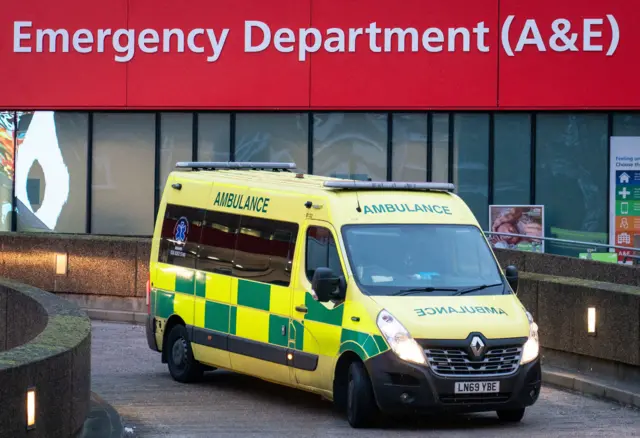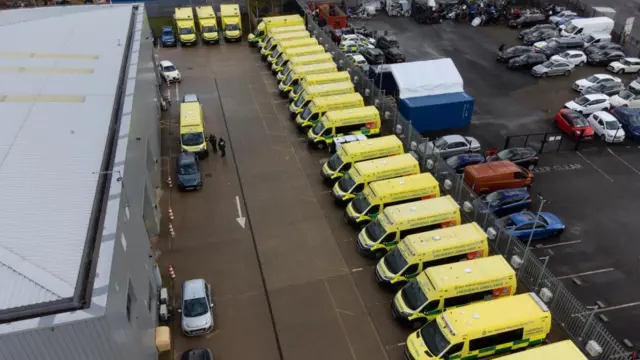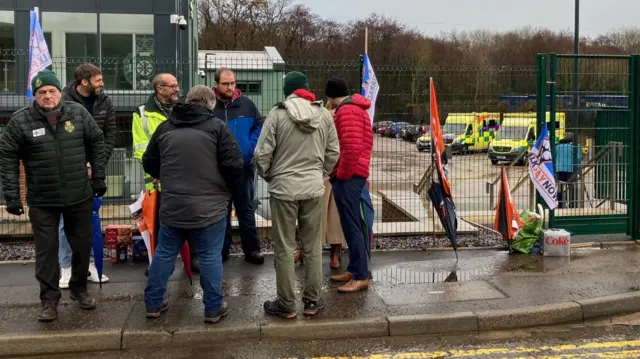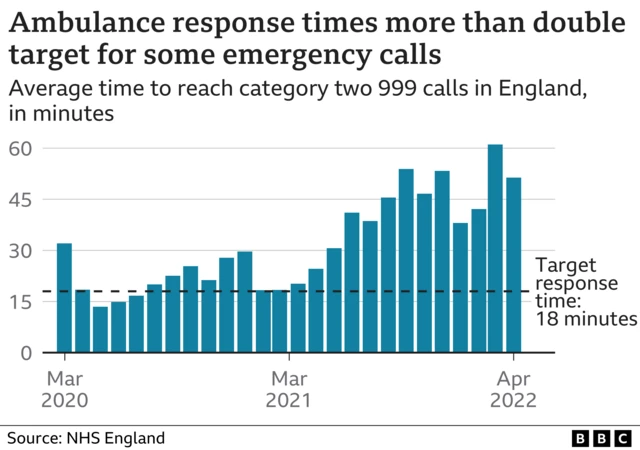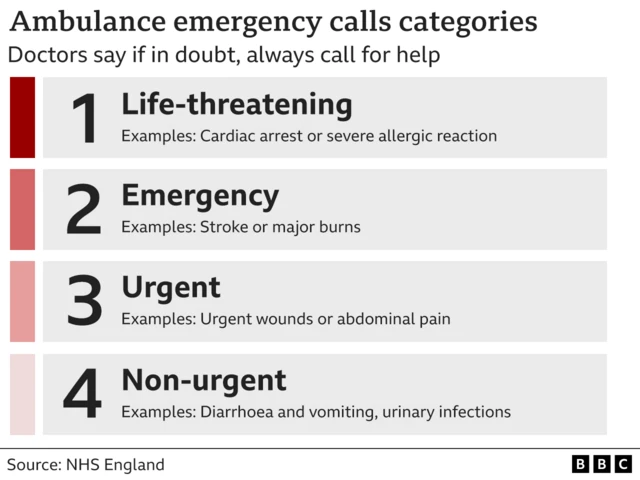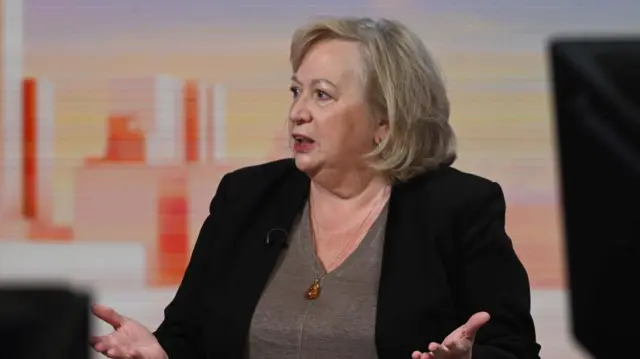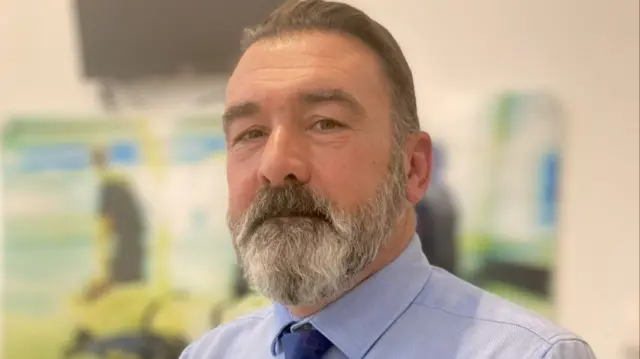In London today, there are 200 ambulances instead of the usual 400published at 11:51 GMT 21 December 2022
In the UK's capital, strike action is due to start at 12:00 GMT. The chief executive of London Ambulance Service said ahead of the strikes that it would be a "really difficult day" - despite being confident that Londoners with life-threatening conditions would get the care they needed
Daniel Elkeles told the BBC that his team had been "working incredibly hard to ensure that we can have a response to the sickest patients who phone 999".
Elkeles explained how the service will operate during the day:
- There will be 200 ambulances available for the capital, compared to the usual 400 plus 50 cars
- Most of those 200 ambulances will be staffed by a member of the military, "with a clinician that may or not be a paramedic"
- Voluntary staff and some private ambulances will be involved
- There will be the usual number of call handlers, although they won't automatically dispatch a vehicle as usual; instead, a team of physicians will ring patients back to see if they can "find a response for those patients which isn't an ambulance"
- If the above plan proves insufficient, Elkeles says "our staff from picket lines will go and respond"
